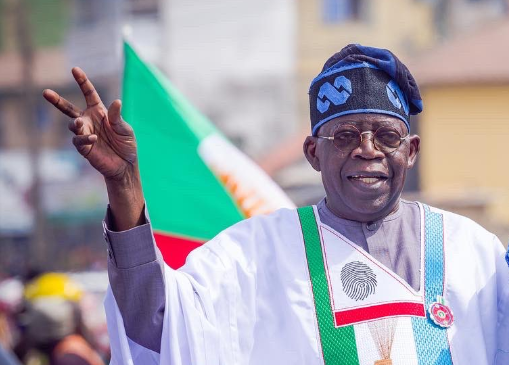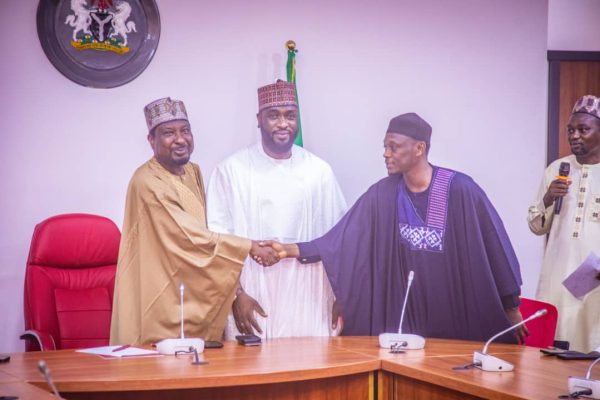On May 29th, 2023, the nation witnessed the inauguration of Bola Tinubu as the president of Nigeria, with a promise of renewed hope and a brighter future. However, as we mark the 51st day since his swearing-in, it is increasingly evident that this promised optimism is nowhere to be found. Instead, Nigerians are facing a series of economic challenges that have only worsened since Tinubu’s declaration that fuel subsidies were over.
The fuel price surge was one of the first blows to the hopes of Nigerians. Following the announcement, fuel prices skyrocketed by almost 200 percent, with the Nigerian National Petroleum Company Limited (NNPCL) setting prices between N480 and N570 per litre, compared to the previous rate below N200. This sudden hike rippled through the economy, leading to an increase in transportation fares and the cost of goods and services, exacerbating the financial strain on citizens.
As if the fuel price hike was not enough, inflation rates continued to soar. In June, the annual inflation rate reached a staggering 22.79 percent, compared to 18.60 percent in the same month the previous year. The food inflation rate also increased to 25.25 percent, leaving many families struggling to afford basic necessities. In response to the mounting food crisis, Tinubu declared a State of Emergency on food insecurity, but the situation remains dire for countless Nigerians.
The energy sector also faced turmoil, as electricity distribution companies applied for a review of electricity tariffs, leading to the anticipation of even higher costs for consumers. With these harsh realities unfolding, President Tinubu sought to implement cash transfer programs to alleviate hardship, but the proposed N8,000 monthly palliative faced widespread criticism as being unsustainable.
In response to mounting public pressure, Tinubu has ordered a review of the cash transfer program and the release of fertilizers and grains to millions of farmers and households. However, the damage has already been done, and many Nigerians are questioning the viability of these measures to truly address their suffering.
On top of these economic challenges, controversies surrounding Tinubu’s identity and education records in the United States further cast a cloud over his presidency. The U.S. authorities have refused to release his criminal and immigration records until 2026, raising questions about potential omissions and contradictions in his background. Such uncertainties have fueled further doubt and discontent among the Nigerian populace.
As the days go by, social media has become a platform for Nigerians to express their anger and resentment towards the administration. The “Renewed Hope” mantra has been labeled as fraudulent and deceitful, as citizens find themselves further impoverished with no clear vision for a better future.
The pump price of petrol has once again soared from N500 to N617 per litre, triggering public outcry and widespread condemnation from various sectors of the society. The situation has left citizens grappling with the economic burden, and they express disappointment and frustration at Tinubu over what they describe as an alleged plan to further impoverish the people.
Residents of Ondo State, in particular, are disillusioned by the renewed surge in fuel prices, comparing Tinubu’s policies to those of his predecessor, former President Muhammadu Buhari. Many had hoped that Tinubu’s political influence and economic prowess would translate into policies that genuinely benefited the masses. However, recent events have shattered those expectations, leaving citizens questioning their choice.
With the exorbitant fuel price causing outrage, Tinubu’s plan to pay N8,000 to 12 million poor households as a palliative measure drew further criticism. Many citizens argue that this program is not sustainable and fails to address the root causes of the economic hardships they face.
In light of the mounting criticism and social media uproar, President Tinubu has ordered an immediate review of the proposed N8,000 conditional cash transfer. Additionally, he has directed the unveiling of the entire government’s palliative package, hoping to assuage the discontent that has been brewing among the Nigerian populace.
However, the controversies do not end there. Details about Tinubu’s criminal and immigration records in possession of the United States have come to light, further adding to the doubts and uncertainties surrounding his presidency. The U.S. State Department and Federal Bureau of Investigation cited ‘unusual circumstances’ for denying the release of the records to the public until 2026, prompting a civil lawsuit filed over the matter before a United States District Court.
Aaron Greenspan, an American public disclosure activist, had filed a request to the FBI, State Department, Department of Treasury, and Drug Enforcement Administration, among federal and local agencies, seeking an urgent release of Mr. Tinubu’s immigration and criminal records. The request came in the context of ongoing challenges to Tinubu’s election as president of Nigeria before a tribunal hearing election petitions in Abuja.
In the midst of these challenges, Nigerians as always are resilient. They still believe in the potential for real change and progress. However, their hearts are heavy with the weight of expectations that have not been met and promises that have yet to be fulfilled.
As the Tinubu administration navigates these troubled waters, there is a call for more than just words and promises. The nation craves action, tangible improvements in their daily lives, and policies that truly address the root causes of their struggles. The journey towards a brighter future is not an easy one, but with dedication, transparency, and a genuine commitment to the well-being of the people, the path to true hope and progress can be forged.














